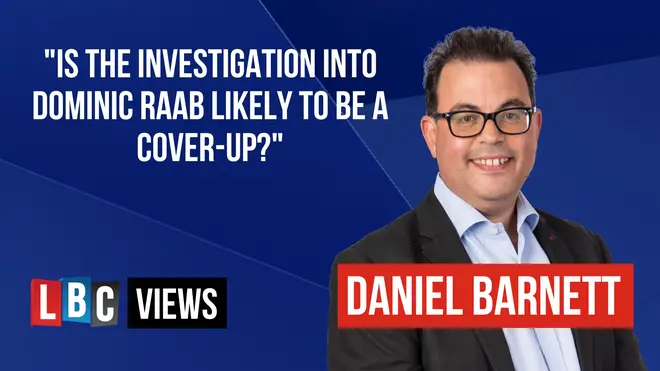
Paul Brand 10am - 12pm
23 November 2022, 16:31

Rishi Sunak, the Prime Minister, has announced that he has appointed commercial and employment barrister Adam Tolley KC to investigate the bullying allegations which have been made into deputy Prime Minister Dominic Raab, who also serves as Secretary of State for Justice.
The terms of reference involve drawing up a report for the Prime Minister (which will be published), and the Prime Minister will then decide whether to impose any disciplinary sanction.
Already allegations are appearing on social media that Adam Tolley is an establishment figure with existing links to the government. The implication, although no reputable journalist comes out and says so openly, is that he will have an eye to political advancement and may be less robust when investigating Dominic Raab than others might be.
Adam Tolley, KC appt'd by Rishi Sunak to investigate complaints of bullying against Raab, has previously rep'd in employment tribunals: Charles when Prince of Wales; a string of gvt departments; and an unidentified security service.
— Henry Dyer (@Direthoughts) November 23, 2022
W/ @PippaCrerar https://t.co/EfGvNWPNSF
As a barrister, I know the level of integrity that a leading KC brings to bear on any case he or she is involved with. Doing this job involves speaking unpleasant truths to power – be that ‘power’ a judge in court, or a client who is contributing to our mortgage.
We tell the truth, because the moment we stop telling the truth, no judge will trust again, and no colleague will ever take our word for anything. The Bar is a small profession, and the accolade of KC is only awarded to the best, and most fearless, of us. Indeed, one of the five criteria for selection as a KC is integrity, along with understanding the law, advocacy, working with others and diversity.
Ironically, any leading barrister of a certain age is likely to have an eye on appointment to the High Court bench. This is the most prestigious judicial appointment available to a barrister, involving a knighthood and a salary of over £190,000 per annum. The appointment is made by an independent body, the Judicial Appointments Commission, which is completely separate from the government.
Any whiff of a suggestion that a barrister had not been impartial when conducting any official investigation would be fatal to appointment as a judge.
Indeed, any barrister conducting on an investigation such as the one into the deputy Prime Minister would probably have an eye on being able to use his or her work in that investigation as evidence with which to back up an application for a judicial role, to demonstrate skills such as independence of mind and the ability to analyse complex issues and reach clear reasoned decisions.